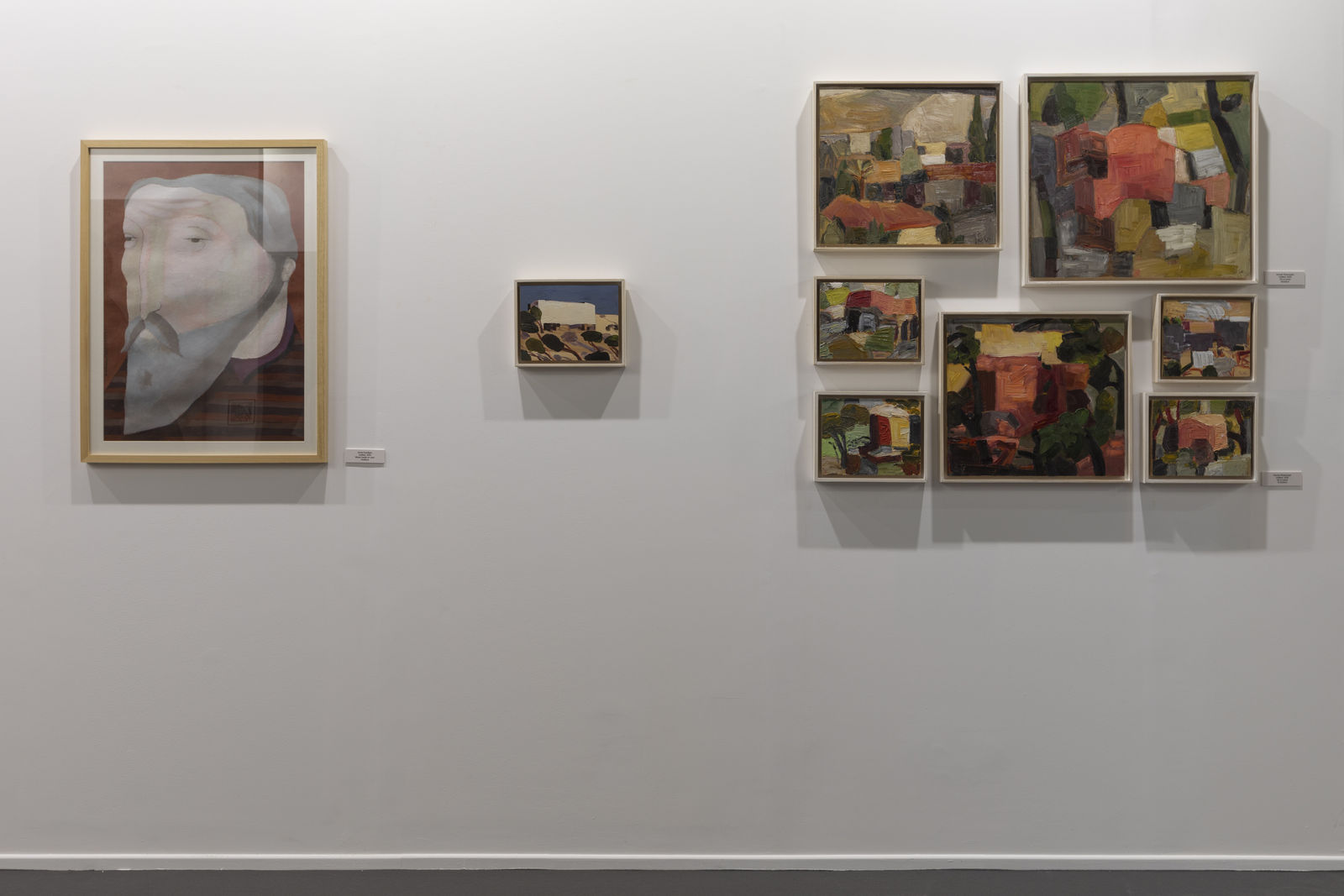Art Dubai 2023: Art Dubai 2022
Overview
 Booth A-15
2-9pm
https://www.artdubai.ae/
Booth A-15
2-9pm
https://www.artdubai.ae/
Souad Mardam Bey’s oversized canvases are brimming with undercurrents of emotion; layers of color and intricate details which adorn her subjects. She does not simply produce snapshots of your everyday man and woman – she creates a community of otherworldly creatures, held captive to her use of overpowering colors and entrancing techniques. The technique is both intense and overwhelmingly powerful. Applying layers of oil paint and mixed media onto the canvas.
Ultimately, it is all about achieving a spontaneous harmony between technique and subject, her technique and subject serves one another. The artist uses her unique style to give her subjects a life of their own, and the people housed inside her canvas wear that style with flair.
Fouad Mimi is a colorist from the beginning, and over the years, he has continued to draw inspiration from natural and urban scenes of Jordan, drawing in a rich melody and a brush with great impression. His skill is inherent in being colorful and is able to present a new innovation. He is able to match the form that expresses his ideas perfectly. It is always the search for a new artistic language in form, color, and place: a language with an independent personality.
Although, while working on his craft, he held other jobs; like teaching, TV production, and fashion design over the past thirty years. Mimi’s style is impressionistic; his aim is to create harmony between color and subject, his subject being his society, his land, traditions and people.
Ammar Khammash, a prominent artist, paints expressionistic works with an emphasis on landscapes and cityscapes. He encompasses both the geology and biology, which comes not from canvas and paints, but from the experience of life in a particular terrain, where he has walked alone through these places and has experienced them intimately.
In line with his academic studies, the surrounding landscape influences much of Ammar’s work. The majority of his paintings come form in his imagination but are strongly influenced by the Jordanian lands and rocks. He is enamored by the earth studies and the integrity of land. When on expeditions, he documents the land in drawings and photography. He uses of drawing as a tool of seeing and understanding even if he does looks at them again, he draws to understand. The act of drawing is more important than the product, as it serves as his truest lens, impinging on his mind’s eye.
















